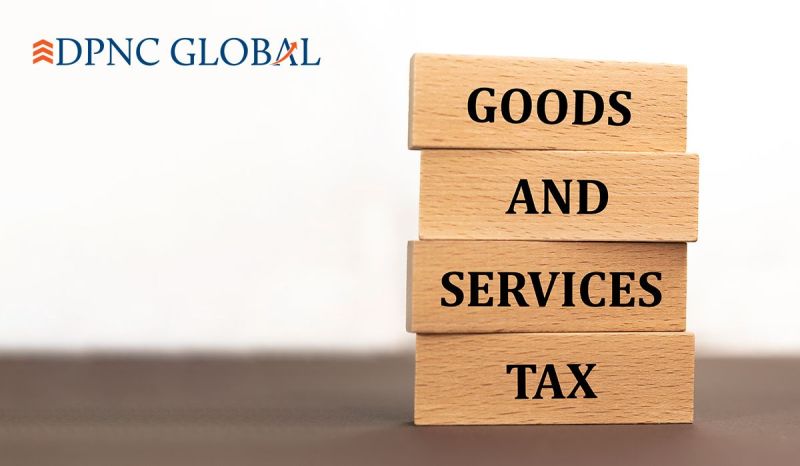TDS UNDER GST
TDS stands for Tax Deducted at Source, which pertains to the tax deducted by the buyer of goods or services, including government departments, during payment under a business contract.
Entities obligated to deduct TDS under GST include:
- Departments or establishments of the Central or State Government.
- Local authorities.
- Governmental agencies.
- Individuals or groups designated by the Government.
- Public sector undertakings.
- Societies established by the Central or any State Government or a Local Authority, registered under the Societies Registration Act, 1860.
- Authorities, boards, or other bodies established by Parliament or a State Legislature or by a government, with at least 51% equity (control) owned by the government.
The TDS rate specified under GST laws is 2% (comprising 1% CGST and 1% SGST, or 2% IGST) on payments made to the seller of taxable goods or services.
Regarding the limit for TDS deduction, if the total value of supply under a contract exceeds INR 2.5 lakhs, the entity is required to deduct TDS. In terms of the payment timeline, the deductor must remit the TDS amount by the 10th day of the subsequent month using Form GSTR-7.
TCS UNDER GST
TCS stands for Tax Collected at Source, which refers to the tax collected by electronic commerce operators when a seller provides goods or services through their website, and the operator collects the payment for such supply.
Section 52 of the CGST law mandates e-commerce aggregators to implement TCS in GST. These aggregators are required to deduct and remit tax at a rate of 1% from each transaction.
Dealers or traders selling goods or services online will receive payments after a deduction of 1% tax (comprising 0.5% CGST and 0.5% SGST, or 1% IGST).
This amendment significantly increases compliance and administration costs for online aggregators like Flipkart, Snapdeal, Amazon, etc. They must deposit the deducted tax by the 10th day of the following month using Form GSTR-8.
All traders or dealers selling goods or services online must register under GST to claim the tax deducted by e-commerce operators, irrespective of whether their turnover falls below the threshold limit for GST registration.
TDS AND TCS CREDIT RECEIVED UNDER GST
Accessing TDS and TCS credit on the GST portal is a feature available to all taxpayers. It applies to those engaged in specified sales through e-commerce platforms or involved in works contracts with government departments. The form closely resembles GSTR-2A, as it automatically populates details from GST returns such as GSTR-7 and GSTR-8. Users can find the ‘TDS and TCS credit received’ tile on the return dashboard upon logging in to the GST portal. This allows them to either claim or reject the credit for TDS and TCS deducted or collected by their respective government deductor or e-commerce operator.
PURPOSE OF FORM TDS AND TCS RECEIVED
To access GST TDS/TCS deducted by the deductor /collector, the deductee is required to review and either accept or reject the TDS/TCS credit through the ‘TDS/TCS Credit Received’ tab on the GST portal. Therefore, to utilize the GST TDS/TCS deducted, all deductees must file the ‘TDS/TCS credit received’ tab on the portal.
The deducted amount will be reflected in the Cash Ledger, which can then be utilized or refunded.
DUE DATE FOR FILING ‘TDS AND TCS CREDIT RECEIVED.
There is no due date or late filing fees for filing TDS/TCS credit received. But preferably it must be filed before the deadlines where tax payment is due: the 20th of the following month before filing GSTR-3B or the 18th of the month following every quarter for those filing GSTR-4. It can be filed only once a month and only via the online platform. However, you may file the ‘TDS and TCS credit received’ Form before the filing of Form GSTR-1/GSTR-3B.
To download the pdf file of the above post, please click on the download button below.
About Our GST Services
DPNC Global LLP is a full service consulting firm providing multi-disciplinary services to clients ranging from MNCs, Indian Corporates from across industries to Family Offices and UHNIs, both in and outside India.
Our GST & Indirect Tax Services team focuses on resolving practical issues faced by taxpayers and businesses while ensuring due compliance with complex legislation. Our services extend from timely and systematic support for GST compliances to advisory on a wide range of contemporary indirect tax issues and GST litigation support.
Our team of GST Consultants possesses in depth experience across diverse sectors and offer tailored solutions for tax optimization while ensuring due compliance with this complex and dynamic legal transaction regime law. To know more about our services, visit https://dpncglobal.com/gst-indirect-tax/
DISCLAIMER:
The information contained herein is in summary form and is prepared based on the provisions of GST law and related Rules, Circulars, and Notifications therein. For details, please refer to the relevant requirements. While the information is believed to be accurate to the best of our knowledge, we do not make any representations or warranties, express or implied, as to the accuracy or completeness of this information. The reader should conduct and rely upon their examination and analysis and are advised to seek their professional advice. We accept no responsibility for any errors it may contain, whether caused by negligence or otherwise or for any loss, howsoever caused or sustained, by the person who relies upon it.

